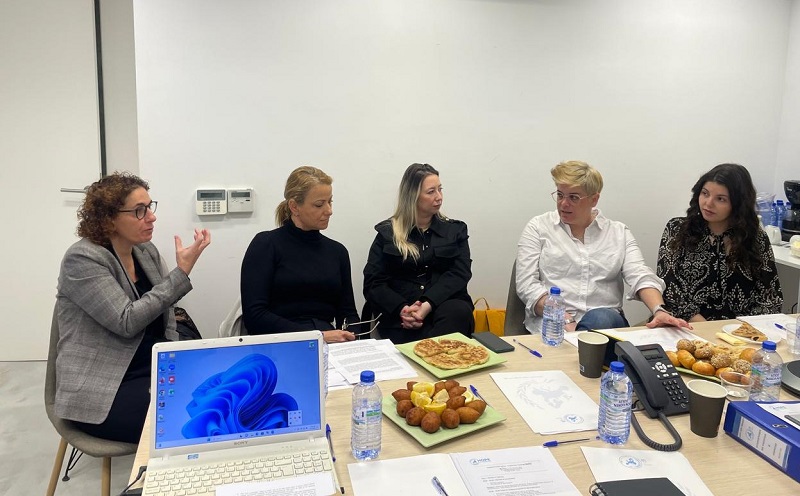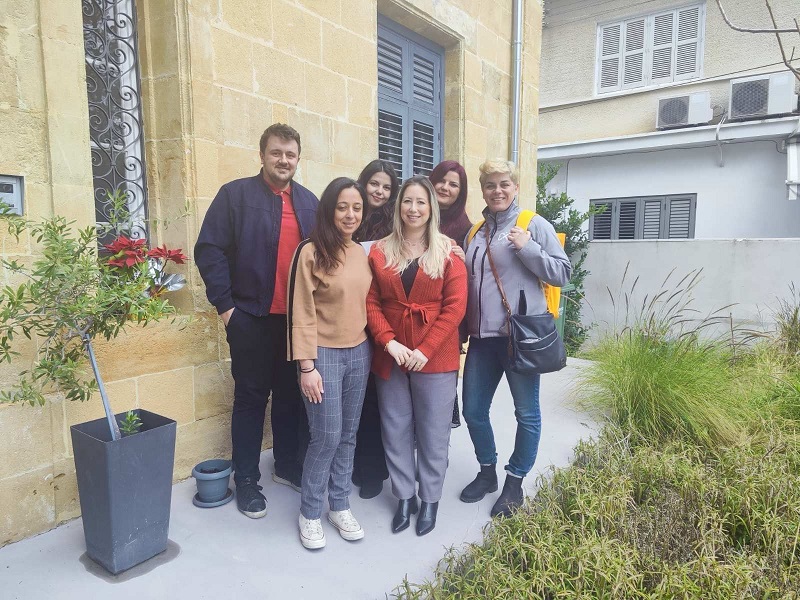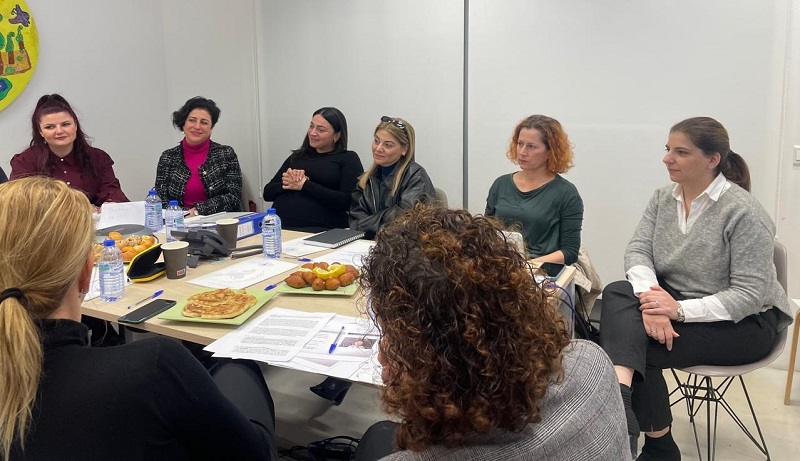“Hope For Children” CRC Policy Centre hosted a peer exchange meeting in Cyprus with a delegation from Croatia’s Centre for Missing and Exploited Children, focusing on best practices in supporting child victims of abuse. Held at the Children’s House (CH) in Nicosia, the two-day meeting fostered international collaboration and explored the multidisciplinary Barnahus model in Cyprus.
Key stakeholders — representatives from Social Welfare Services, Cyprus Police, Mental Health Services, the Ministry of Education, Hope For Children and Foni Council — discussed inter-agency cooperation, legislative frameworks, and child-centered investigative procedures. Speakers emphasised the importance of cross-sector collaboration, continuous professional training, and structured child protection protocols. The Croatian delegation was led by Nika Šiprak Wendling, Assistant Director of the Centre.
The meeting began with an introduction to “Hope For Children” and its specialised programmes, highlighting its structured, child-centred approach. Executive Director Andria Neocleous, alongside Andria Angastiniotou (Director of Humanitarian Division), Tania Masia (Director of Learning & Innovation), Emma Mesikammen (Director of Research & Development), Rodoulla Papalambrianou (CH Coordinator) provided an in-depth overview of the organisation’s mission and services towards child protection.

Representatives from all stakeholders involved in the operation of CH discussed the challenges and successes of implementing the Barnahus model in Cyprus. The Social Welfare Services of the Deputy Ministry of Social Welfare appointed “Hope For Children” to operate the Children’s House, while SWS is mandated to monitor and co-fund its operation. The Children’s House (Barnahus) in Cyprus operates based on the European Barnahus Quality Standards and is recognised as a best practice in Europe.
Hara Tapanidou (Principal Social Welfare Officer) highlighted Social Welfare Services’ role in establishing Barnahus in Cyprus as the government body responsible for its implementation and its current involvement in its operation. Anastasia Papadopoulou (Former President of Foni Council) provided insights into the legislative framework and policy efforts that paved the way for Children’s House Cyprus. Semeli Vyzakou (Clinical Psychologist, Directorate of Mental Health Services Cyprus) emphasised the necessity of mental health interventions and educational awareness programmes. Maria Kountouri (Vulnerable People Sub-Directorate, Cyprus Police) elaborated on law enforcement’s commitment to child-friendly investigative procedures, explaining how police involvement in Barnahus ensures children are heard in a safe and supportive environment. Clea Papaellina (President of Council FONI) also met with the participants and informed them about the role of FONI and the new National Strategy under way.

Participants engaged in meaningful discussions on how cross-sector cooperation has contributed to the success of Children’s House Cyprus. The combined efforts of “Hope For Children”, social welfare services, law enforcement, judicial authorities, mental health professionals, and schools were recognised as crucial in establishing Barnahus as a fully-integrated child protection system. The necessity of continuous professional training, structured collaboration and well-defined protocols was underscored as key to safeguarding children and supporting them through the justice system.
This initiative marks a significant step toward strengthening international partnerships and improving support systems for children who have experienced abuse.






Click here to change your cookie preferences